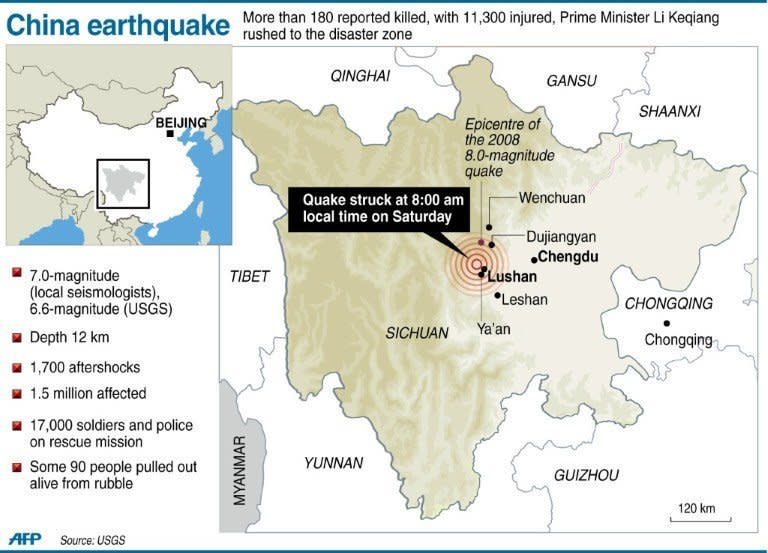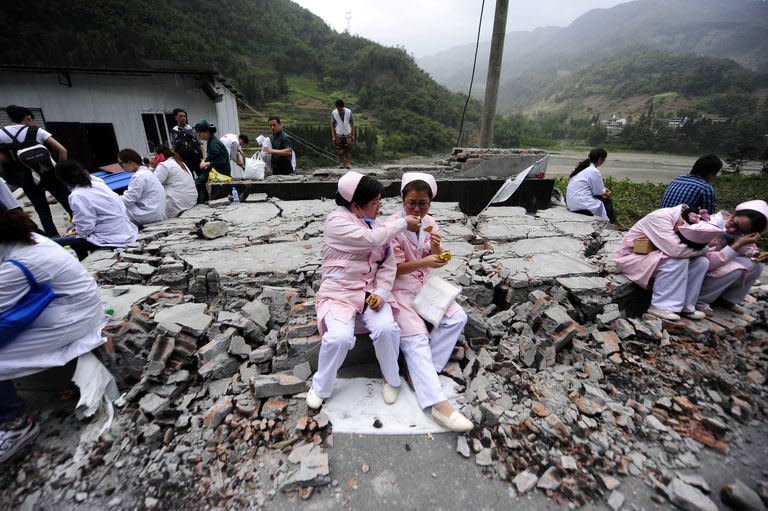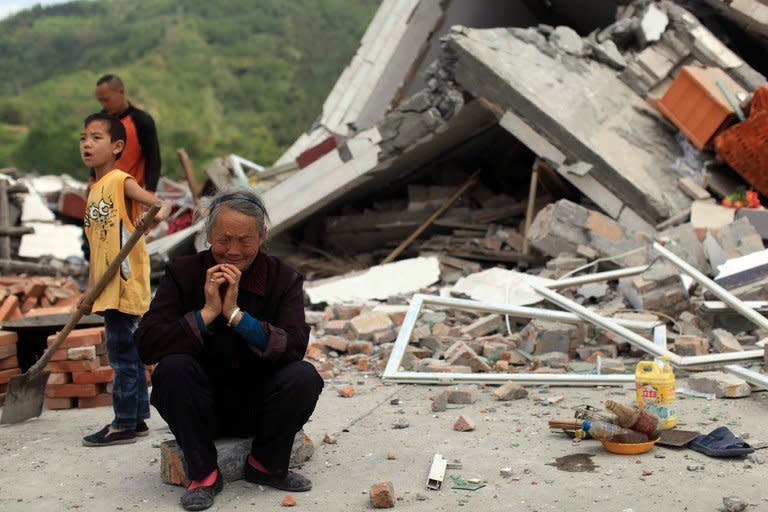China quake rescuers battle landslides, debris
Clogged roads, debris and landslides impeded rescuers Monday as they battled to find survivors of a powerful earthquake in mountainous southwest China that has left at least 192 dead. Huge boulders blocked rescue vehicles along roads leading to some of the worst-hit areas, and some areas were only accessible by foot along broken passes through the rough terrain. Survivors including the elderly were carried out on the backs of neighbours as well as by helicopter, as rescuers were also bolstered by thousands of civilian volunteers who rushed to the area to help. State broadcaster CCTV showed orange-suited emergency workers making desperate dashes past cliff-edges, trying to avoid sudden landslides in a region weakened by more than 2,000 aftershocks. Industrial diggers clawed through debris including the mangled remains of cars and motorbikes crushed by tumbling rocks, to clear roads also clogged by huge queues of traffic. The 6.6-magnitude quake which hit Sichuan province Saturday has left another 23 missing and more than 11,000 injured, local authorities said, while some 17,000 families have lost their homes. Local villager Luo Chengfang, 54, spoke of her relief when her 31-year-old son Luo Shiwei was pulled out from under seven feet of rubble. "I have no home, and no hope for the future, but I was so relieved he came out alive," she said, showing AFP where he was pulled out by rescue workers after he was trapped by the quake while sleeping in his bed. Forecasts of rain in the disaster area on Monday increased fears of deadly landslides. "I dare not go anywhere near a mountainside," a woman named Zhu told AFP as she arrived from the devastated village of Baoxing into the centre of the county of Lushan. "Many people are worried that the rain will bring more devastation," she added. The constant sound of ambulance sirens heading to Lushan People's Hospital, near the quake's epicentre, was a reminder that the earthquake was still claiming victims two days after it struck. Premier Li Keqiang left the quake zone on Sunday, state media reported, after rushing to the area the day before to direct rescue efforts, in his first major public test since being appointed to the senior post in March. More than 22,000 Chinese soldiers and police have joined the rescue mission and five drones were sent to capture aerial images of the damage, state news agency Xinhua said. The disaster comes five years after a massive quake in Sichuan which occurred just 200 kilometres (124 miles) from Lushan, and was one of the worst to strike China in decades, leaving 90,000 dead or missing. The 2008 quake triggered an outpouring of public anger after the discovery that many schools collapsed while other buildings did not, creating suspicions of corruption and shoddy construction. However, the response on China's Twitter-like "weibo" sites to Saturday's disaster has overwhelmingly been one of support, with thousands pledging to donate money and others mourning the victims. UN Secretary General Ban Ki-moon offered his condolences, saying he was "deeply saddened by the loss of life, injuries and destruction caused by the earthquake and aftershocks". Earthquakes frequently strike China's southwest. In April 2010, a 6.9 magnitude quake killed about 2,700 people and injured 12,000 in a remote area of Qinghai province bordering the northwest of Sichuan.





